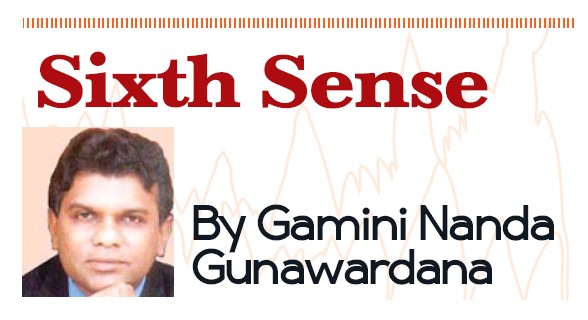Reply To:
Name - Reply Comment
Last Updated : 2024-04-20 20:10:00
 “G reat leaders are God-gifted, not man-made.” This quote sums up the basic tenant of the Great Man theory of leadership – i.e. you are either a natural born leader or you are not.
“G reat leaders are God-gifted, not man-made.” This quote sums up the basic tenant of the Great Man theory of leadership – i.e. you are either a natural born leader or you are not..jpg) The Great Man theory largely died out for a reason - it ignores all the ‘little people’ who may have made the Great Man what he was, greatly assisted in his efforts and perhaps contributed far more collectively than he ever did alone. Essentially, it hypothesizes two classes of people, shepherds and sheep.Even in Sri Lanka the events took place in the recent past can explain merits and demerits of the Great Man theory. Sri Lanka was going through a civil unrest over a period of 30 years. Then Sri Lankan president, charismatic leader Mahinda Rajapaksa gave the leadership to crush terrorist groups and to re-establish peace in the country in 2009. While not undermining his leadership in winning the war, the fact remains that there were several other political and non-political organisations, civilian groups, armed forces and individuals supported the efforts towards winning the war.
The Great Man theory largely died out for a reason - it ignores all the ‘little people’ who may have made the Great Man what he was, greatly assisted in his efforts and perhaps contributed far more collectively than he ever did alone. Essentially, it hypothesizes two classes of people, shepherds and sheep.Even in Sri Lanka the events took place in the recent past can explain merits and demerits of the Great Man theory. Sri Lanka was going through a civil unrest over a period of 30 years. Then Sri Lankan president, charismatic leader Mahinda Rajapaksa gave the leadership to crush terrorist groups and to re-establish peace in the country in 2009. While not undermining his leadership in winning the war, the fact remains that there were several other political and non-political organisations, civilian groups, armed forces and individuals supported the efforts towards winning the war.
Add comment
Comments will be edited (grammar, spelling and slang) and authorized at the discretion of Daily Mirror online. The website also has the right not to publish selected comments.
Reply To:
Name - Reply Comment
On March 26, a couple arriving from Thailand was arrested with 88 live animal
According to villagers from Naula-Moragolla out of 105 families 80 can afford
Is the situation in Sri Lanka so grim that locals harbour hope that they coul
A recent post on social media revealed that three purple-faced langurs near t